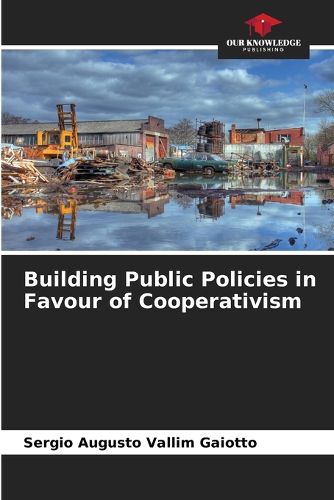Readings Newsletter
Become a Readings Member to make your shopping experience even easier.
Sign in or sign up for free!
You’re not far away from qualifying for FREE standard shipping within Australia
You’ve qualified for FREE standard shipping within Australia
The cart is loading…






This title is printed to order. This book may have been self-published. If so, we cannot guarantee the quality of the content. In the main most books will have gone through the editing process however some may not. We therefore suggest that you be aware of this before ordering this book. If in doubt check either the author or publisher’s details as we are unable to accept any returns unless they are faulty. Please contact us if you have any questions.
Public policies aimed at the solidarity economy have been increasingly intensified in Brazil through social projects, the creation of laws such as the National Solid Waste Policy, or even through collaborative actions between the state and individuals in situations of social and economic inequality (BRUM, MOURA, 2015; SOUZA, 2011), as is the case with co-operative actions established in the field of recycling solid urban waste. The importance of inserting public policies in line with the solidarity economy stems from the emergence of issues directly related to the economy, social welfare, productivity and the Brazilian workforce, i.e. generating work and income, subsistence, sustainability, family structure and valuing the national productive force, for example, are elements that have stimulated the constitution of public policies in the national territory (SOUZA, 2011; ANTUNES, 2008).
$9.00 standard shipping within Australia
FREE standard shipping within Australia for orders over $100.00
Express & International shipping calculated at checkout
Stock availability can be subject to change without notice. We recommend calling the shop or contacting our online team to check availability of low stock items. Please see our Shopping Online page for more details.
This title is printed to order. This book may have been self-published. If so, we cannot guarantee the quality of the content. In the main most books will have gone through the editing process however some may not. We therefore suggest that you be aware of this before ordering this book. If in doubt check either the author or publisher’s details as we are unable to accept any returns unless they are faulty. Please contact us if you have any questions.
Public policies aimed at the solidarity economy have been increasingly intensified in Brazil through social projects, the creation of laws such as the National Solid Waste Policy, or even through collaborative actions between the state and individuals in situations of social and economic inequality (BRUM, MOURA, 2015; SOUZA, 2011), as is the case with co-operative actions established in the field of recycling solid urban waste. The importance of inserting public policies in line with the solidarity economy stems from the emergence of issues directly related to the economy, social welfare, productivity and the Brazilian workforce, i.e. generating work and income, subsistence, sustainability, family structure and valuing the national productive force, for example, are elements that have stimulated the constitution of public policies in the national territory (SOUZA, 2011; ANTUNES, 2008).